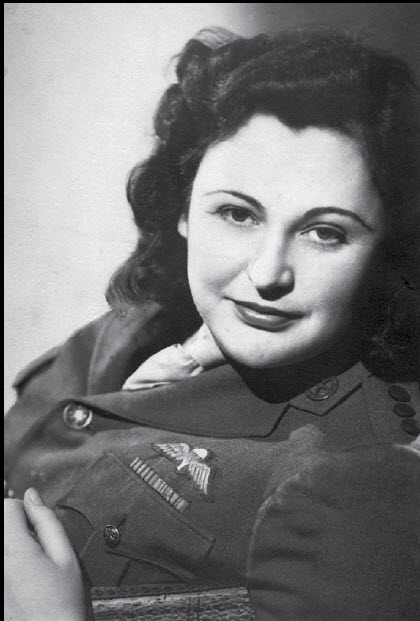 By: Ali Elizabeth Turner
By: Ali Elizabeth Turner
I was born eight years after the end of WWII, and my life as well as our culture was appropriately still in its shadow. This was a near constant, even as the Greatest Generation came home and sacrificed once again so that we could have the life that they had risked theirs to purchase. My dad rarely talked about the war, and when he did, it was in largely generic terms. But there was one thing that we were encouraged to do, and that was to study the history of WWII. In particular, when I was around 12, I became fascinated with the Holocaust as well as the tales of the Resistance.
When my kids were growing up, I read to them extensively, and they knew that people in Europe risked their lives to make life miserable for the Nazis. But for all my years of fascination, I never heard about the woman who was the greatest threat to the Third Reich, and who was given the name, “The White Mouse.” Her name was Nancy Wake, and she made it possible for several British and American soldiers as well as Jews to escape from Vichy, France, during the German occupation.
Now mind you, Nancy was no saint. She was beautiful, had a foul mouth, a hot temper and was, shall we say, “bawdy.” She desperately loved her husband, Henri Fiocca, who was a wealthy French industrialist from Marseille. I have no idea what motivated her to take the risks she took, but it cannot be disputed that the woman saved a whole bunch of lives. She was the recipient of the George Medal by the British; France awarded her the Croix de Guerre with Palm and bronze star, and the Medaille de la Resistance. The United States gave her the Medal of Freedom, and Henri gave his life.
There are a number of versions of just what exactly happened, but one thing is sure, and that is that while Henri had been arrested by the Gestapo, Nancy escaped into Spain. He was tortured and killed, and Nancy did not know about his death for a long time.
From Spain she went to England and trained with Winston Churchill’s newly-formed guerilla group, the Special Operations Executive. She learned how to parachute, and insisted on being sent back to France. Although having her parachute getting tangled in a tree could have easily ended her “White Mouse” days, it seems that it just was not her time, and she along with the Maquis saved thousands of lives.
Besides her courage, Nancy was known for her cheerfulness as well as her sense of humor. Guys became embarrassed at how much they whined in comparison to Nancy, and straightened up. Was she complicated? Completely. Was she brave? More than most. Was her contribution to the war effort genuinely crucial, or is she just honored because that’s the PC thing to do? Her contribution to the war effort was inarguably critical, in spite of the controversy she generated. No matter what, Nancy Wake, the White Mouse who evaded the Nazis until they were defeated, and who helped defeat them, is a true heroine, and she makes me curious to learn more about how she embodied courage in uncertain times.







